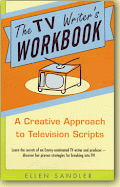




 Alex Glass began his publishing career at the Putnam Berkley Publishing Group. He served three years in the National Endowment for the Arts, Marketing & literature department where he helped award over seventy federal grants to American writers.
Alex Glass began his publishing career at the Putnam Berkley Publishing Group. He served three years in the National Endowment for the Arts, Marketing & literature department where he helped award over seventy federal grants to American writers.He came to Trident Media as an assistant of Chairman Robert Gottlieb's in 2001. He was promoted to literary agent shortly thereafter.
Mr. Glass has a BA in political science from Johns Hopkins and an MFA in creative writing from American University.
He is looking for: debut literary fiction, crime fiction and literary thrillers, middle grade and young adult fiction, and pop culture, humor, and narrative nonfiction.
NOT looking for: Romance, science fiction, unsolicited picture books for children
His clients list includes national best selling authors and award-winning authors. His client’s books have been sold to the movies, television, and to foreign publishers around the world.
SOME OF HIS NOTABLE CLIENTS:
Matt Bondurant - International best selling author
Katherine Marsh - Edgar Award-winning author
Da Chen - New York Times best selling novelist and memoirist
Mark Bavaro - NFL legend (ROUGH AND TUMBLE),
Ellen Raskin - Newbery Award-winner
Brian M. Wiprud - Award-winning mystery writer
Trident Media Group Agency has also represented some of the biggest and most prestigious book deals for celebrities, including Jerry Seinfeld, Sir Anthony Hopkins, Mel Brooks, Aretha Franklin, Drew Barrymore, Paul Reiser, Brian Wilson, Tony Curtis, Carl Reiner, Mariel Hemingway, and Tony Bennett.
E.I. In your opinion, is it a mistake to believe that the opening chapter can be successful in a third-person omniscient narrative, without introducing the protagonist and without a single line of dialogue until the very end of the chapter?
A.G. No, it is not a mistake to believe that. I would never set up rules for fiction like that; authors have played with conventions in many unusual ways to good result. This particular strategy sounds difficult to pull off, and it’s not something I’d advise everyone to try, but I wouldn’t want to say that it couldn’t be successful.
E.I. If an agent is interested in a manuscript, he'll sometimes ask for an exclusive read. What does an exclusive read mean for both the agent and the writer? Under what circumstances might an agent request an exclusive read?
A.G. I ask for exclusive reads sometimes, when a manuscript sounds like an especially good fit for my list and I want to read it quickly. Usually when I do so, I will ask for a two-week exclusive read. An author should only grant an exclusive read to an agent if the author is confident that that agent is right for them. The author benefits from the exclusivity because they know that the right agent for them is going to pay closer attention and read the material more quickly, and within a specified period of time. But I am also aware of an author’s need to make an informed decision, so I am not inflexible if an author wants to submit simultaneously. Although in that scenario the author would not be likely to get a guarantee on the timing of the response. Different agents have different rules and strategies around this.
Photo of Alex Glass by Olga Gottlieb
To learn more about Alex Glass, please visit their website.











.png)

No comments:
Post a Comment